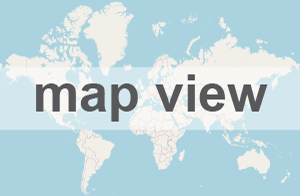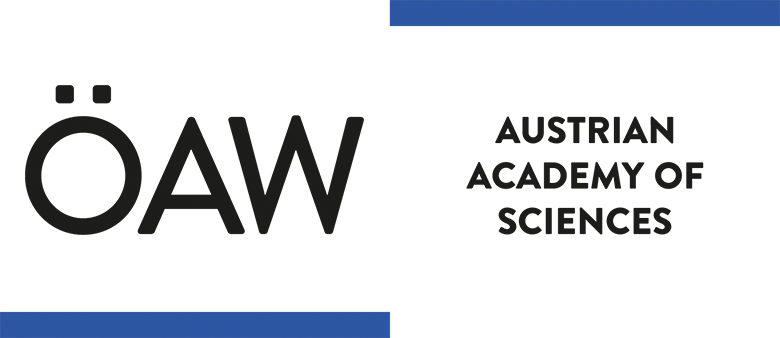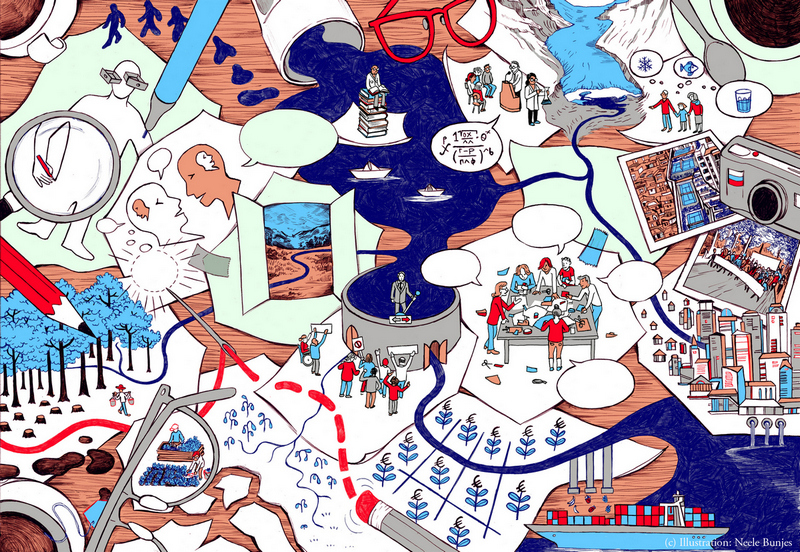Institute for Interdisciplinary Mountain Research (IGF) - Austrian Academy of Sciences (OeAW)
Austria
Description: The Institute for Interdisciplinary Mountain Research (IGF) of the Austrian Academy of Sciences investigates the regional manifestation of Global Change (climate change and globalization) in mountain regions. This means structures and processes in natural and cultural spaces in the past, present and future. Current social challenges include sustainable development, globalization and climate change, alongside related measures of adaptation and steering. The Project Highlands.3 is located in the research group Man and Environment, Settlements, which focus is on geographical processes, land use changes and cultural landscapes. In this research group, we combine quantitative and qualitative methods in order to better understanding the relations of humans with the environment in settled mountain areas. This facilitates deriving recommendations for action that are relevant to society and to on-the-ground situations to support decision makers.
Regional focus: The principal regional focus of the research group Man and Environment, Settlements, lies on the Alps and in the Andes. Additional focus at the IGF lies in the Himalayas.
Staff members involved: Oliver Bender, Fernando Ruiz Peyré, Kevin Klar, Andreas Haller, Valerie Braun, Kay Helfricht, Annemarie Polderman, Kati Heinrich, Heidi Humer-Gruber
Working Packages: WP1-Coordination; WP3-Comparison and analysis; WP5-Communication and Dissemination
Category: Academic
Links:
- Website Research group: Research group Man and Environment, Settlements
- Website IGF: Institute for Interdisciplinary Mountain Research (IGF)
- Website OeAW: Austrian Academy of Sciences
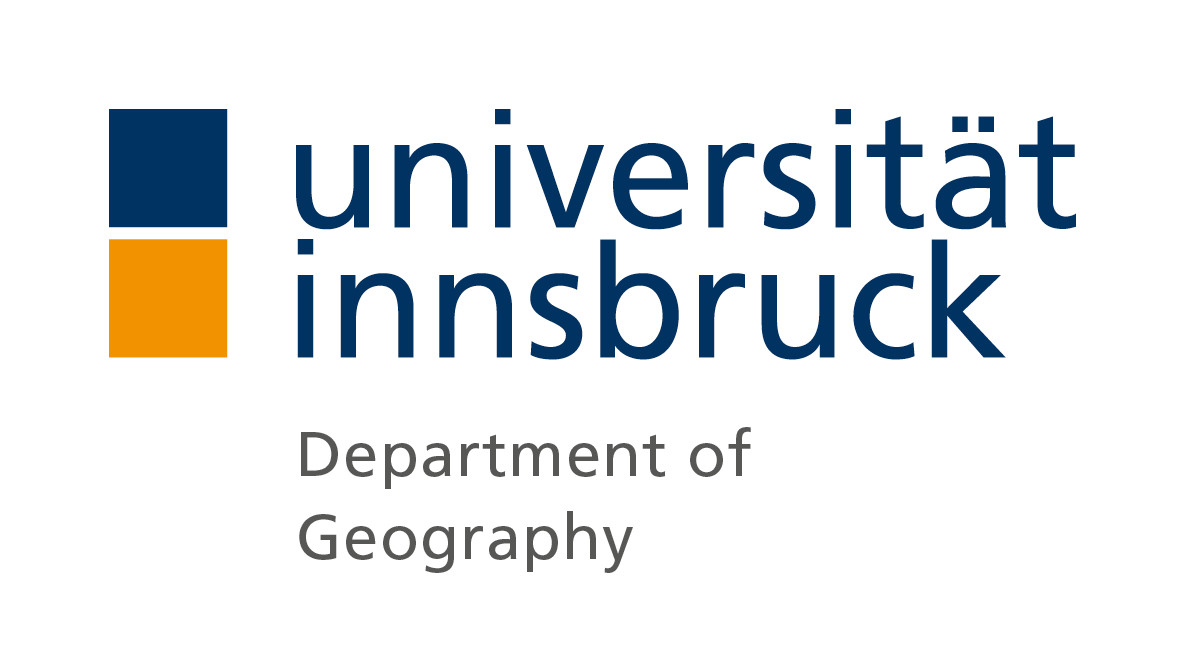
University of Innsbruck - Department of Geography
Working Group Development Studies and Sustainability Science (AGEF)
Austria
Description: The Working Group for Development Studies and Sustainability Science (AGEF) at the Institute of Geography, University of Innsbruck aims at developing new ways of understanding and approaching social, economic and environmental sustainability in both, research and teaching. The empirical research activities are actor-oriented, taking into account uneven power structures and social inequalities. The thematic priorities are North-South relations and development, transitions towards regional sustainability and human-environment relations. In the sense of an engaged geography, which takes an unequivocal stand on current challenges and moreover questions existing power and disparity relationships, we try to put an emphasis in our research on the protagonists and their actions. The current thematic priorities are sustainable regional development, human-environmental relations and the processes of change in urban and rural regions.
Regional focus: The principal regional focus of the AGEF lies on the Alps and in the Andes.
Staff members involved: Robert Hafner, Martin Coy, Christian Obermayr, Christian Schleyer, Karl-Michael Höferl, Jutta Kister, Michael Klingler, Kurt Nicolussi, Clemens Geitner, Felix Dorn, Nils Unthan, Jessica Balling, David Segat
Working Packages: WP3-Comparison and analysis; WP5-Communication and Dissemination
Category: Academic
Links:
- Website AGEF: Working group Development Studies and Sustainibility Science (AGEF)
- Website Department: Faculty of Geo- and Atmospheric Sciences
- Website University: University of Innsbruck
Cooperating Projects:

FoodAlternatives.at: Exploring values-based modes of production and consumption in the corporate food regime
Description: A Young Independent Research Group project financed by the Austrian Science Fund (FWF)
The current agricultural and food system is dominated by transnational corporations that are based on competition, economic growth and the maximization of profits. This corporate food regime is contested by social movements and producers, which are often locally based and aim for a more sustainable production based on values such as solidarity or trust. In our research project, we analyze small- and mid-scale initiatives that we understand as values-based modes of production and consumption to identify how they work to change corporate power and the state in relation to the corporate food regime.
Website: https://foodalternatives.at/
Twitter: https://twitter.com/foa_at

Instituto Politécnico do Tomar
Portugal
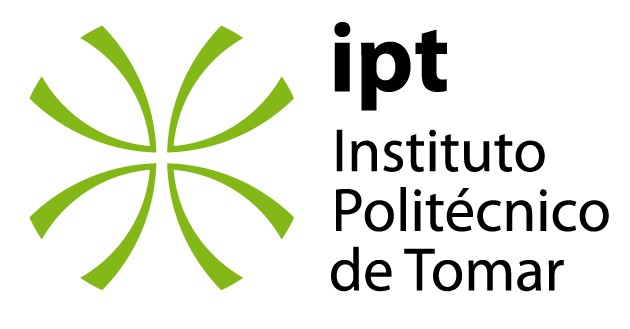
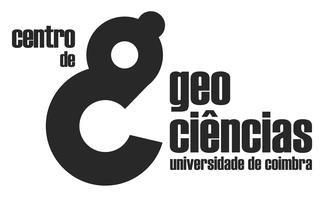
Description: The Instituto Politécnico de Tomar (IPT – Polytechnic Institute of Tomar) is a legal public higher education institution, whose mission is to nurture talent and generate knowledge. Through innovative research, the IPT aims at providing solutions to society's challenges, guaranteeing that its graduates face workplace challenges and, thus, holding wide-ranging links with employers and business.
IPT’s structure holds three schools: Management School, and two Technology schools.
Presently, about 3300 members are part of our academic community: 3000 students, 230 lecturers and 100 technical and administrative staff. IPT currently offers 17 Bachelor degrees, 14 Master degrees; 25 Higher National Diplomas, 14 Postgraduate Diplomas, all accredited. The main study fields are: Environmental related Studies, Patrimony, Management, Tourism, Design, Communication, Engineering, Technology, Arts and Heritage Conservation.
Research is an institutional strategic objective with faculty members actively involved in different national and international research projects. Besides its existing laboratories, through its formal network, IPT has access to several other laboratories and facilities that encompass different areas of research.
Faculty members are integrated in 3 R&D Units: Geosciences (CGEO), Technology, Restoration and Arts Enhancement (Techn&Art), and Smart Cities (CI2). Moreover, since 2018 the IPT hosts the UNESCO Chair in Humanities and Cultural Integrated Landscape Management.
Official contact:
GID – Research and development office
Luis Filipe Santos
Edifício F, Quinta do Contador. Estrada da Serra. 2300-313. Tomar. Portugal
E-mail:
Tel: +351 249 328 100
Cell: +351 967 743 365
Staff members involved:
- Luis Filipe Santos, PhD, MSc, BSc Hons, Environmental Biology
- Laurent Caron, PhD candidate Patrimonial studies, MA History, Culture and ancient civilizations, MA History
- Cecilia Baptista, PhD Chemistry
- Luis Mota Figueira, PhD Tourism
Working Packages: WP2-Methods & Capacity Building (Lead partner)
Category: Academic
Links:
- Website IPT: http://portal2.ipt.pt/
- Website Geociencias: https://www.uc.pt/fctuc/ID/Geo
- Facebook: https://www.facebook.com/iptomar
- Instagram: https://www.instagram.com/ipt.politecnicodetomar/
- Twitter: https://twitter.com/iptomar
- YouTube: https://www.youtube.com/channel/UCq2ZBskK_huK0NjN12a0puQ /
- Flickr: https://www.flickr.com/photos/iptomar
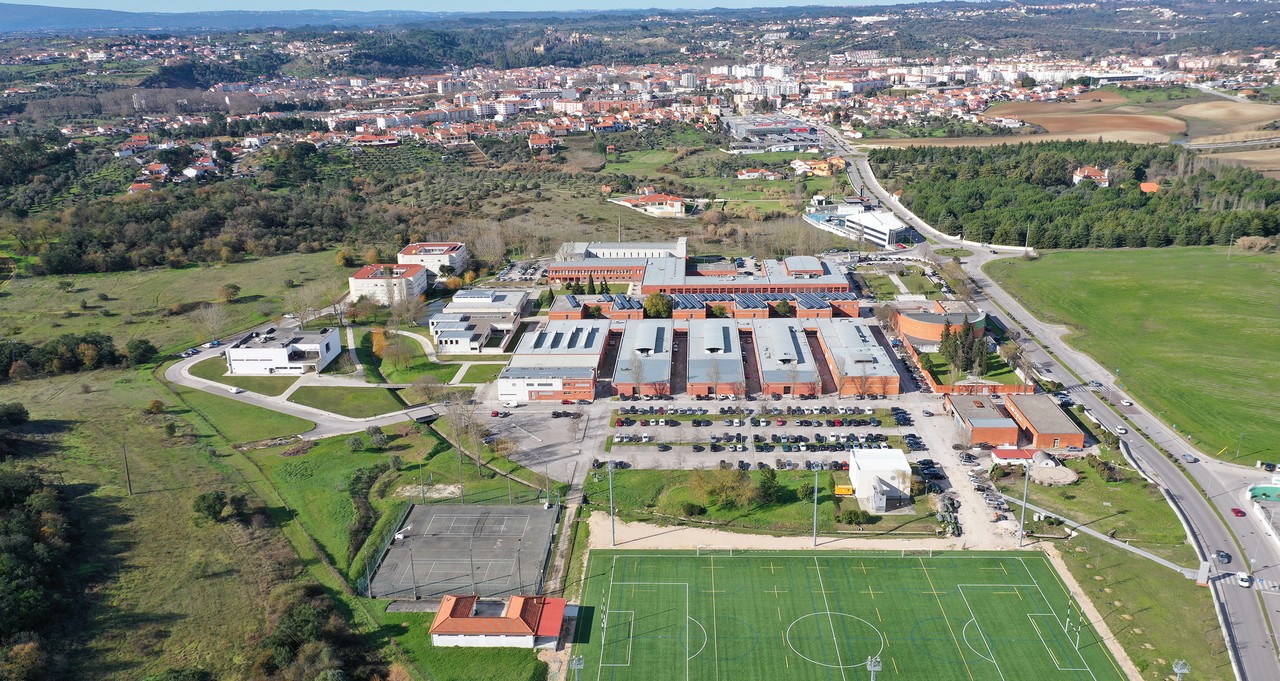
Aerial view of IPT main campus in Tomar-Portugal.
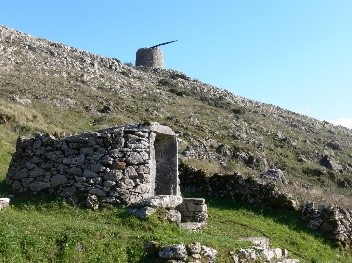
Serras D'Aire and Candeeiros windmills, still a landmark of the Karst landscape.
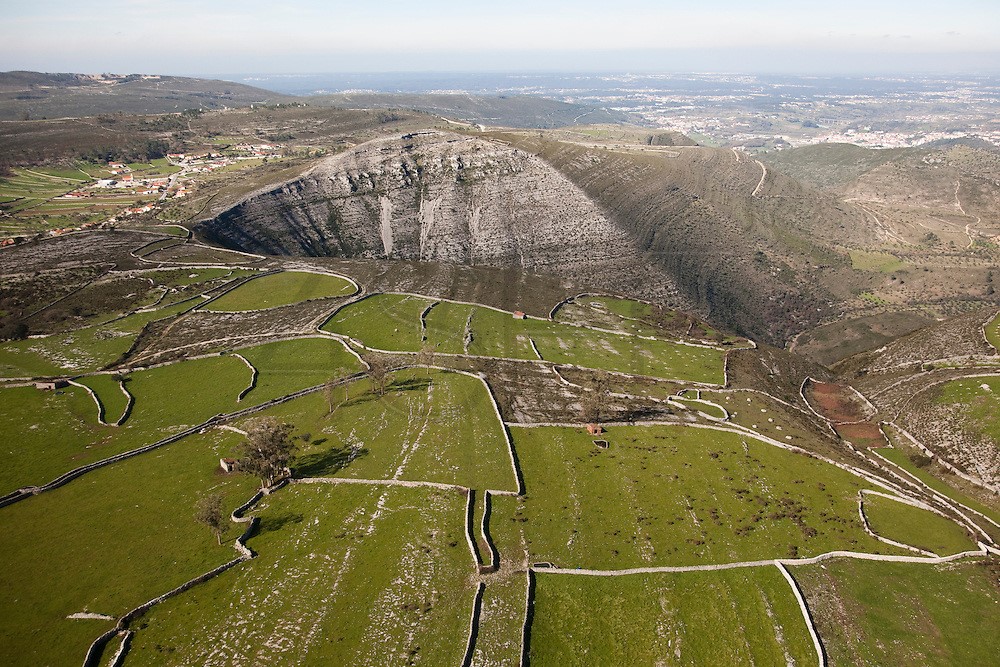
Serras D'Aire and Candeeiros, Natural Park, where man and nature conservation meet.

Norwegian Institute of Bioeconomy Research (NIBIO)
Norway
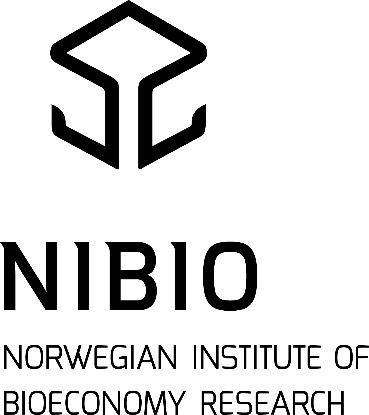
Description: Bioeconomy is an economy that exploits biological resources from land and sea, as well as waste, as inputs for food, energy and other goods and services. NIBIO’s main research focus in this regard is on biological resources from soil, plants, forests and land. Our researchers look at which parts of nature should be protected, managed or utilised in order to extract value from nature in an environmentally and climate friendly way. NIBIO work within highland and mountain areas with focus on issues related to mountain agriculture such as social research related to the sustainability and further development of agriculture and local communities. We work with mapping of resource bases on agricultural land and rangeland, improving crops and grazing resources, sustainable farming practices and biodiversity. Cultivars and breeds adapted to local conditions and climate change, documentation of environmentally friendly and high-quality products from highland and mountain areas are also in focus. NIBIO delivers research, managerial support and knowledge for use in national preparedness, as well as for businesses and the society at large. Approximately 700 employees are present in 16 locations across the country. The main office is located at Ås just outside Oslo.
Official contact:
Dr. PhD Vibeke Lind | Research scientist animal nutrition
E-mail:
Tel: +47 934 99 436
https://nibio.no/en/employees/vibeke-lind?locationfilter=true
Staff members involved:
Working Packages: WP2-Methods & Capacity Building
Category: Academic
Links:
- Website: https://nibio.no/en?locationfilter=true
- Facebook: https://www.facebook.com/Nibio.no/
- Instagram: https://www.instagram.com/nibio_no/
- Twitter: https://twitter.com/nibio_no
- Other: https://vimeo.com/nibio
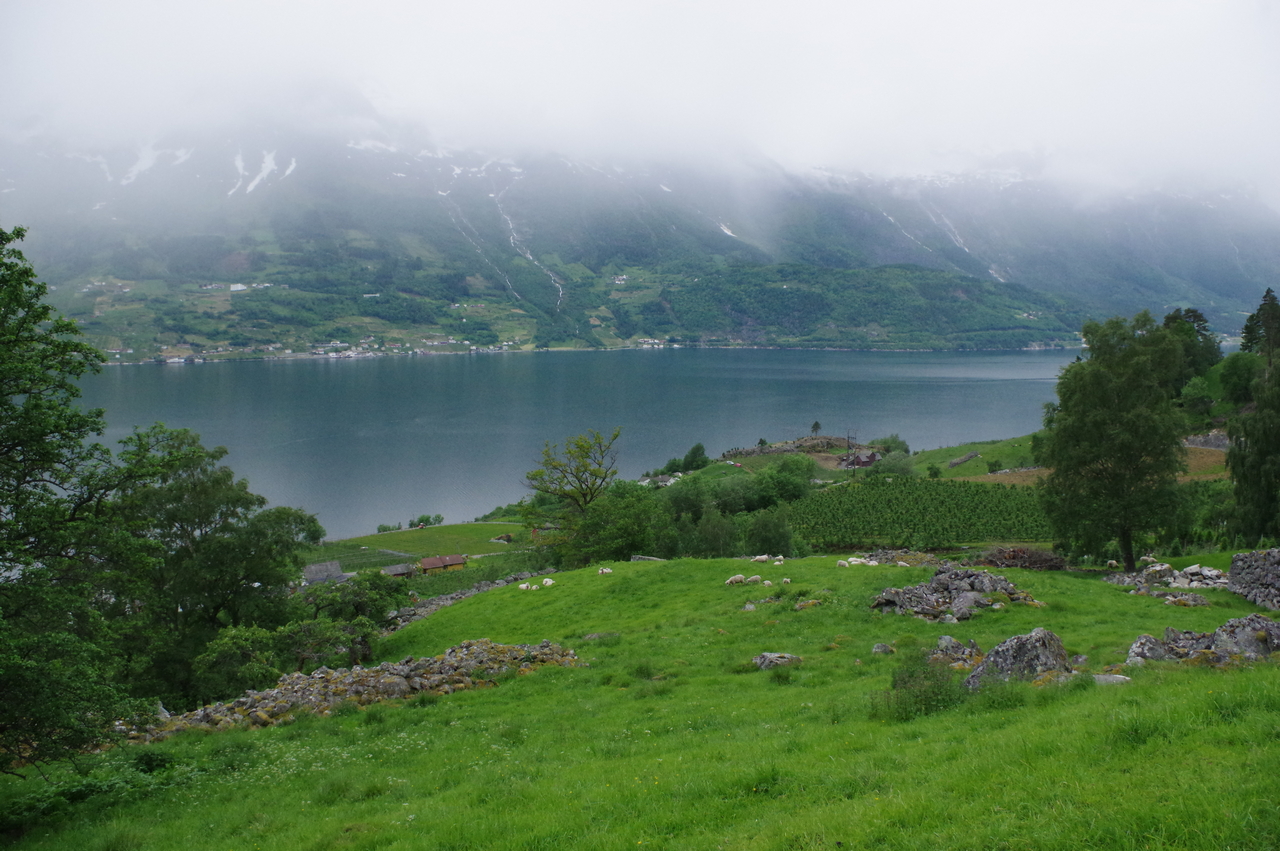
Ullensvang in the inland in the south of Norway in (60°N). Photo: H. Sickle, NIBIO

Universität Hamburg - Institute of Geography
Working Group "Critical Geographies of Global Inequalities"
Germany
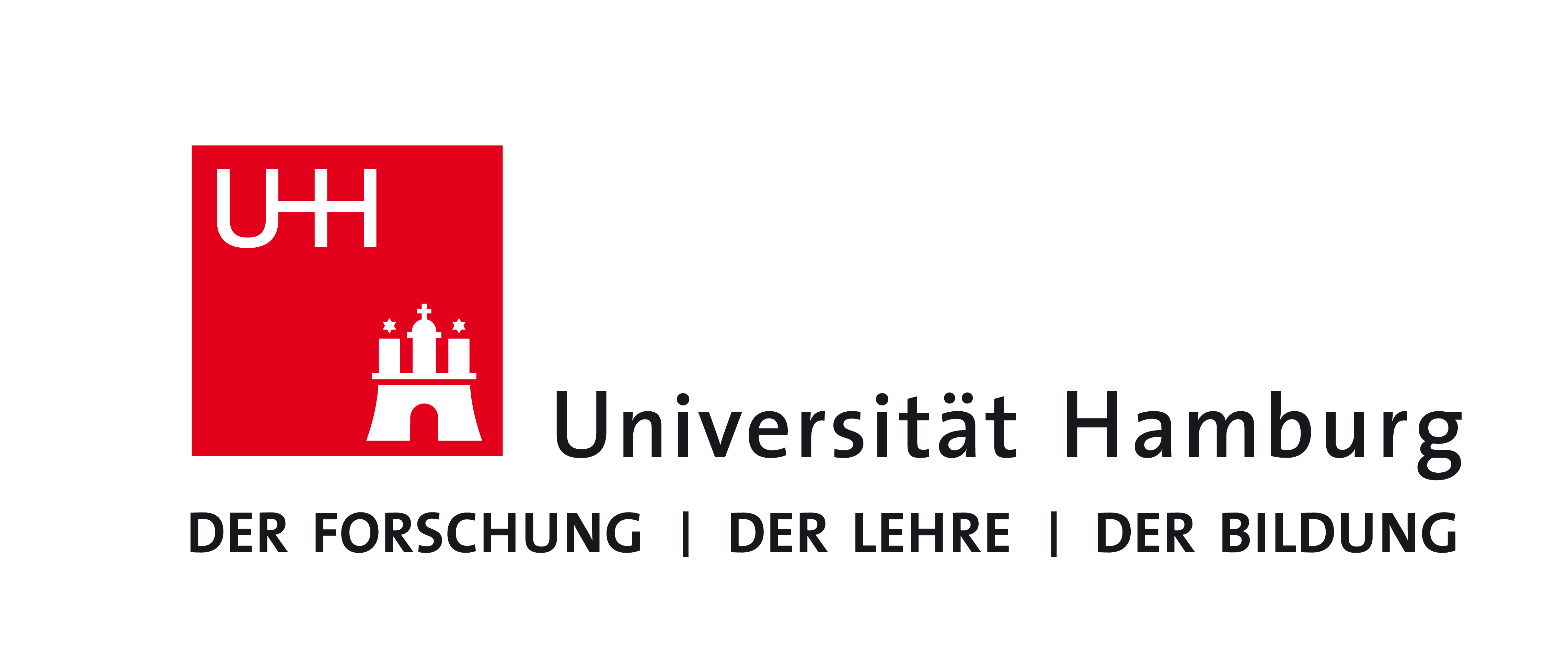
Description: The working group „Critical Geographies of Global Inequalities“ concerns itself with persisting relations of inequality and power from a critical perspective. Rather than accepting these conditions as givens, our collective focus is to reveal their socially produced character and thus to interrogate possibilities of transformation. Our work involves theoretical and conceptual approaches as well as empirical research and we aim to discuss our findings with various social actors and to introduce them into social societal processes.
Our regional foci mainly lie in South America and Europe and we pay attention both to events on a local level and to global dynamics, in order to take into account the close entanglements and interdependencies between different scales. Along with involvement with North-South relations and postcolonial theory, subjects such as Social Nature and urban inequality form part of our research. We mainly work with ethnographic and visual methods, as well as critical cartographies and discourse analyses. First and foremost we understand the working group as a space for discussion and mutual exchange, within which we can develop collective standpoints, but also accommodate different types of questions and approaches.
Art meets cartography – artography?
While trying to reflect on our own theoretical and methodological research practices individually and at the same time willing to develop a standing point as a collective, we quickly reached the limits of the conventional repertoires of scientific practice. We realized that thinking, discussing and writing as our standard tools to acquire new perspectives on different themes was at this time not enough for us, so we started to include creative and visual elements into our reflection processes. It became clear that engaging also creatively with our own work made it possible to deal with complex content related issues as well as theoretical questions and methodological approaches at the same time on one piece of paper. In collaboration with Neele Bunjes, a Hamburg based artist and illustrator, we started a collective artistic mapping process based on the interdependencies between art and scientific knowledge production. Moving between the steps reflection, imagination, visualization, representation and discussion over and over again, this map represents the current intermediate result of our discussion that is part of the ongoing negotiation of our positionalities and therefore neither fixed, nor final.
Official contact:
- Martina Neuburger
E-mail:This email address is being protected from spambots. You need JavaScript enabled to view it. - Tobias Schmitt
E-mail:This email address is being protected from spambots. You need JavaScript enabled to view it.
Working Packages: WP2-Methods & Capacity Building
Category: Academic
Links:

Ellinikos Georgikos Organismos - Dimitra / Hellenic Agricultural Organisation - DEMETER
Research Institute of Animal Science
Greece

Description: Hellenic Agricultural Organisation – DEMETER, promotes research and technological activities in the agricultural production sector within the framework of national and EC agricultural policy, aiming at an integrated approach to deal with the rural development.
The Research Institute of Animal Production (RIAS) has a main role in conducting research in the area of animal science (farm animal nutrition, reproduction and genetic improvement, breeding systems and animal welfare etc) and holds a farm of 348 hectares in Northern Greece (with two flocks of local sheep breeds, among others).
The Veterinary Research Institute (VRI), carries out research activities on animal breeding and reproduction, management and conservation of animal genetic resources, livestock farming systems, animal health and welfare, hygiene and technology of food of animal origin, disease prevention and control in farm animals.
The Institute of Plant Breeding and Genetic Resources (IPBGR) conducts applied research on preservation, evaluation and exploitation of genetic resources (local varieties) and the development and promotion of new cultivars with improved yield, quality and adaptation. Research is focused on crops of extensive area of cultivation, vegetables, deciduous fruit and nuts trees, aromatic medicinal plants and plants of the Greek flora.
Official contact:
Maria-Anastasia Karatzia
Research Institute of Animal Science
Hellenic Agricultural Organisation, Paralimni Giannitsa, 58100, Greece
E-mail:
Staff members involved:
Working Packages: WP2-Methods & Capacity Building
Category: Academic
Links:
- Website: https://www.elgo.gr/
- Facebook: https://www.facebook.com/ELGODIMITRA
- Instagram: https://www.instagram.com/elgodimitra/
- Twitter: https://twitter.com/grafeiotypouelg
- LinkedIn: https://www.linkedin.com/company
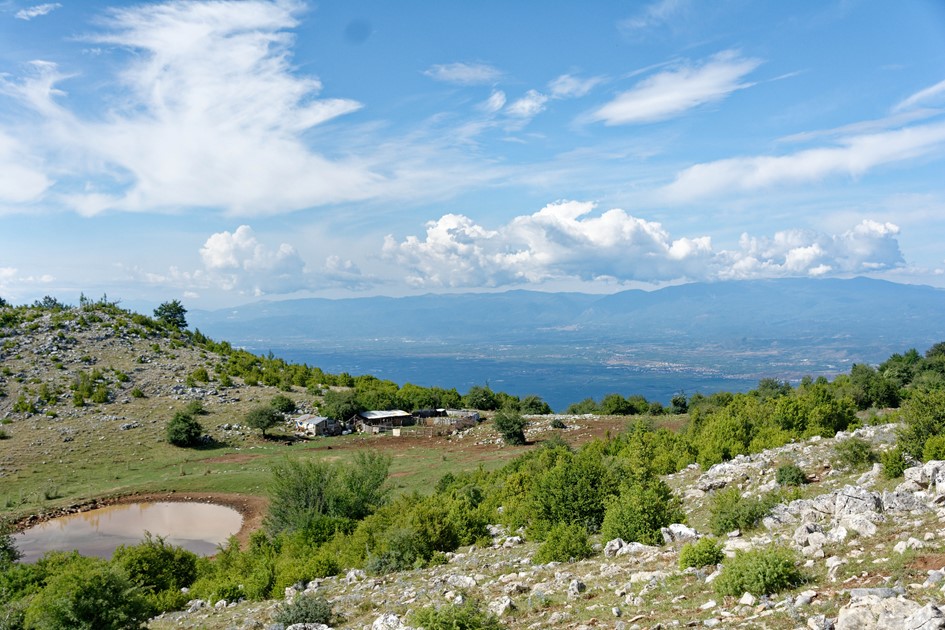
Natural water reservoir and livestock farm facility on Mount Paiko (elevation 1650m, located on the border of Pella and Kilkis regional units in Central Macedonia, Greece).
Photo: Dimitrios Tsiokos (Researcher, Research Institute of Animal Science, HAO-Demeter)

Universidade de Santiago de Compostela
Institute for Galician Studies and Development - ANTE Research Group
Spain

Description: The University of Santiago de Compostela (USC), founded in 1495, is currently a public institution for higher education and research, which is made up by the campuses of Santiago de Compostela and Lugo. The USC is dedicated to the preservation, generation, transmission and dissemination of knowledge in a socially responsible manner and in connection with the demands and challenges of Galician society. The USC has a wide academic offer and a powerful research capacity, and has been valued for its excellence as one of the best universities in Spain and in Europe.
The Territorial Analysis (ANTE) Research Group investigates socio-spatial dynamics, including planning, tourism, local development, protected areas, urban and metropolitan areas and mobility. The main focus is Galicia but has intensively worked at the international level, not only in Europe, particularly in Portugal, but also in Africa (Cabo Verde, Mali, Senegal, etc.) and America (Brazil, Colombia, Ecuador, etc.). It is recognised by the Galician Government as a competitive research group and funded through competitive applications (at the EU, Spanish and Galician level) and consultancy for both public authorities (including several local and regional governments) and companies and private associations.
Nowadays, it consists of more than 20 researchers, mainly from the fields of geography, economics and history at the USC, but also includes several PhD students and researchers from other institutions and disciplines. Some ANTE researchers are steering members of several scientific societies, including the International Geographical Union (IGU), two IGU commissions, the Association of Spanish Geography (AGE), two AGE working groups and the Institute for Catalan Studies (IEC). Also several ANTE researchers are part of the Galician Delegation of the Board of Geographers.
ANTE premises are located in the prestigious Institute for Galician Studies and Development (IDEGA), at the Southern Campus of the USC: https://www.usc.es/gl/institutos/idega.
Regional focus:
- Mountains of the North-Western Iberian Peninsula (Galicia, Northern Portugal, Asturias and Leon), mainly the Trevinca Massif, Gerês/Xurés, the Ancares range, the Courel range and Queixa-San Mamede.
- Mountains of Spain, including the Pyrenees.
- Also experience in other mountain ranges of the world, such as the Alps, the Andes and the Apennines.
Official contact:
- Valerià Paül Carril
E-mail:This email address is being protected from spambots. You need JavaScript enabled to view it. - Paula Solla Sineiro
E-mail:This email address is being protected from spambots. You need JavaScript enabled to view it. - European Projects - USC
E-mail:This email address is being protected from spambots. You need JavaScript enabled to view it.
Staff members involved:
Working Packages: WP2-Methods & Capacity Building; WP4-Building a multi-stakeholder ISDH decision-support Platform (DSP)
Category: Academic
Links:
- Website: www.usc.gal, www.usc.gal/ante
- Facebook: https://de-de.facebook.com/UniversidadeUSC/
- Instagram: https://www.instagram.com/usc.internacional/
- Twitter: https://twitter.com/UniversidadeUSC, https://twitter.com/grupoANTE
Cuíña peak (1992 m), the highest summit of the Ancares range. Photo: Valerià Paül (27/4/2019)
Stone walls for fencing the livestock in the middle of the Serra Calva range (Trevinca Massif). Photo: Valerià Paül (24/9/2017)
Stone walls for fencing the livestock near the source of the Bibei river (Serra Segundeira range, Trevinca Massif). Photo: Valerià Paül (27/6/2017)
Old stone wolf trap in Barxacova (Trevinca Massif): rounded with walls of more than 2 m, a sheep or a goat was located in the middle and there was only a door that was closed when the wolf had entered into. Photo: Valerià Paül (6/3/2017)
The glacial, U-shaped, valley of the upper stretch of the Tera river, with Trevinca peak (2127 m) in the background. Photo: Valerià Paül (4/6/2016)
Ponte, a hamlet located in the glacial, U-shaped, valley of the upper stretch of the Xares river (Trevinca Massif). Photo: Valerià Paül (23/2/2009)
Valouta, a hamlet located in a glacial, U-shaped, valley of the Ancares range. Photo: Valerià Paül (9/3/2019)
Salgueiro, an abandoned hamlet in the Gerês/Xurés mountains restored with public funds. Photo: Valerià Paül (2/1/2013)

Scotland's Rural College (SRUC)
United Kingdom

Description: Scotland’s Rural College - SRUC is a widely respected further and higher education institute dedicated to producing specialist research, delivering high quality education, and providing comprehensive consultancy services in the rural sector within Scotland, the UK and beyond.
The Hill & Mountain Research Centre, with its team of systems-scale researchers, is based at Kirkton and Auchtertyre Farms, a 2,200 ha Highland estate near Crianlarich in the west Highlands of Scotland.
The size, altitudinal range (from 170 m to over 1,000 m) and wide range of inbye grassland and other upland moorland and woodland habitats - characteristic of hill farming and crofting - make SRUC Kirkton & Auchtertyre farms unique within both SRUC’s portfolio of research, demonstration and teaching farm facilities.
Our work aims to seek economically, environmentally and socially sustainable land management systems in the context of international, national and local land use policies.
Kirkton & Auchtertyre farms are uniquely placed – both now and into the future – to test, interpret and demonstrate how best to address the economic, social and/or environmental challenges facing upland land uses in a future that will involve greater amount of economic and climatic shocks.
Official contact:
Davy McCracken
E-mail:
Staff members involved:
Working Packages: WP2-Methods & Capacity Building
Category: Academic
Links:
- Website: https://www.sruc.ac.uk/research/facilities-capabilities/hill-mountain-research/
- Facebook: https://www.facebook.com/SRUCKirkton/
- Twitter: https://twitter.com/DavyMcCracken
- Other: https://www.ruralbrexit.scot/innovation-in-upland-livestock-systems-srucs-hill-mountain-research-centre/
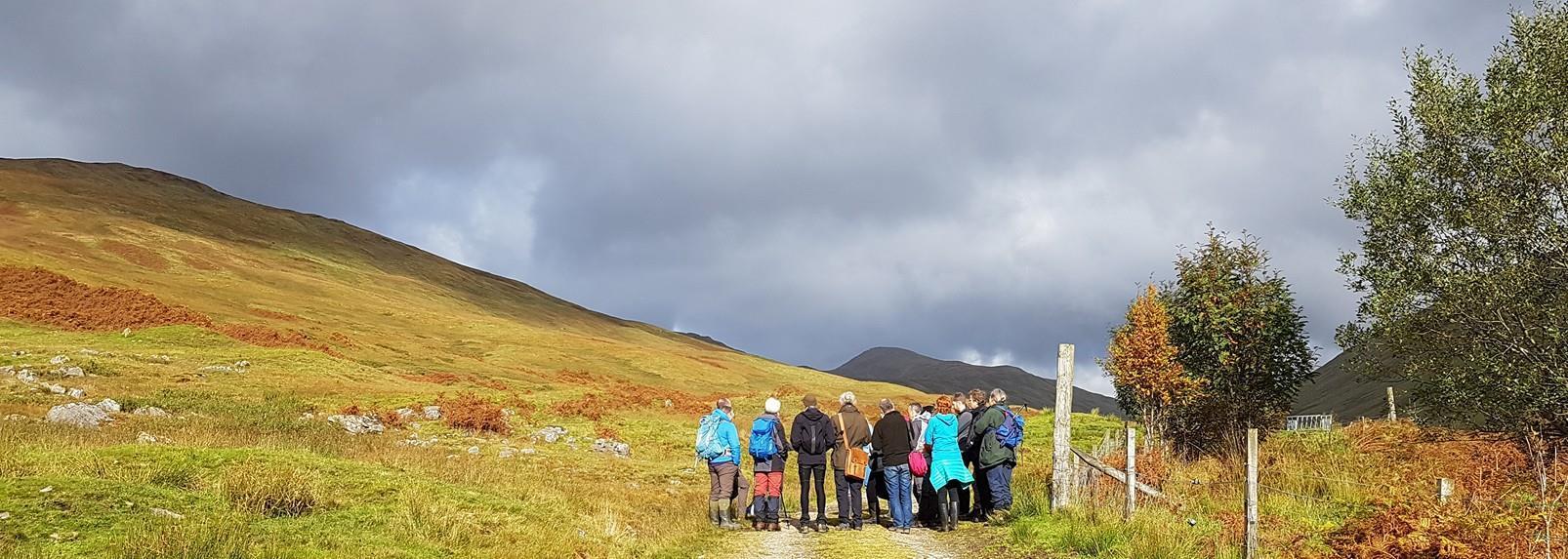
A group of environmental stakeholders discussing challenges and opportunities in upland land management at SRUC’s upland research farms. Photo: Davy McCracken

Institut d'Enseignement Supérieur et de Recherche en Alimentation, Santé Animale, Sciences Agronomiques et de l'Environnement - VetAgro Sup
France

Description: VetAgro Sup is a Higher Education and Research Institution belonging to the Ministry of Food and Agriculture. As the only French structure to train not only Veterinarians but also Agricultural engineers and veterinary public health inspectors, VetAgro Sup develops training and research activities that are naturally in line with the key thematic « Global Health », a rising from the interface between human, animal and environmental health.
More information: http://www.vetagro-sup.fr/about-vetagro-sup/
Official contact:
Charlotte Chêne - Communication Manager
E-mail:
Staff members involved:
Working Packages: WP3-Comparison and analysis
Category: Academic
Links:
- Website: http://www.vetagro-sup.fr/
- Facebook: https://www.facebook.com/VetAgroSup/
- Instagram: https://www.instagram.com/vetagrosup/
- Twitter: https://twitter.com/VetAgroSup
- LinkedIn: https://fr.linkedin.com/school/vetagrosup---campus-v-t-rinaire-de-lyon/
- YouTube: https://www.youtube.com/channel/UCiVr_mDZG9bCJGvhioTbn2A/featured
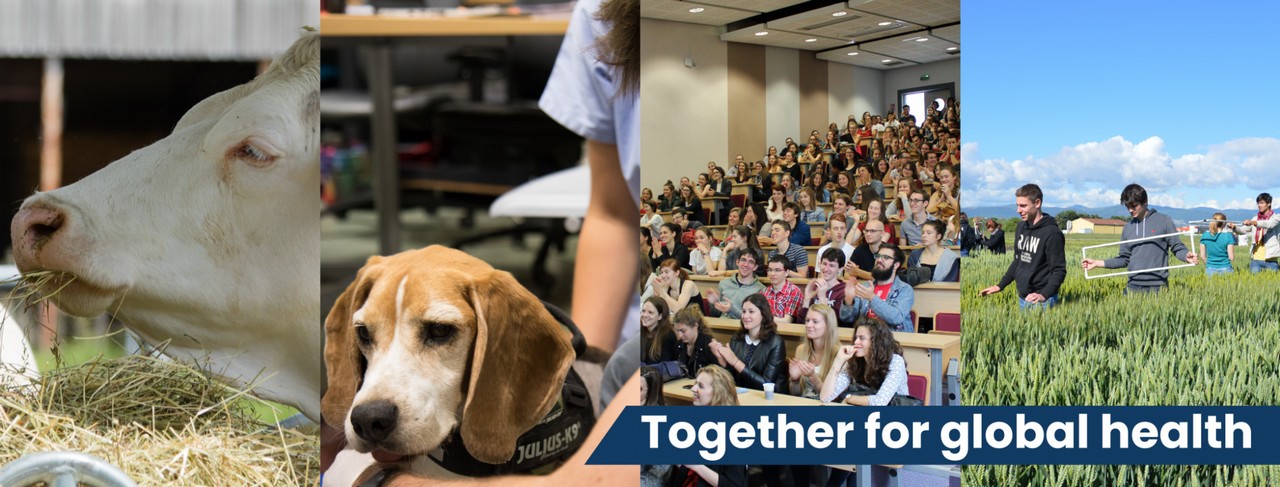

Institut des Sciences et Industries du Vivant et de l'environnement - AgroParisTech
France

Description: AgroParisTech is a higher education and research institution aiming at addressing some of the main global challenges of the 21st century: feeding a growing population while sustainably managing territories, preserving natural resources, supporting innovation and developing the bioeconomy. While doing so, it addresses the following fields: agricultural sciences and technologies, forestry, life sciences, food technology, biotechnologies, environment, nutrition, health, land and natural resources management, as well as related public policies.
The institute offers high level training for Master of Science in Engineering, Master of Science and PhD students as well as lifelong learning programs, while focusing on research and innovation thanks to its joint research units. AgroParisTech is organised in 5 education and research departments.
- Agronomy, Forestry, Water and Environmental Sciences and Engineering
- Life Sciences and Health
- Sciences and Engineering for Food and Bioproducts
- Social sciences, Economics and Management
In 2020, AgroParisTech is ranked 3rd at the European level and 4th at the global level by the QS Ranking for the subject “Agriculture and Forestry” and, being component institution of Université Paris-Saclay, is ranked 12th in Agricultural Sciences by the Shanghai Ranking’s global ranking of academic subjects 2020.
Key figures about AgroParisTech: 250 academic staff; >550 engineers, technicians and administrative staff; 22 joint research units and 1 research & development unit; 2300 students (~16% international) including 350 doctoral students (~34% international); 10 campuses and centers. AgroParisTech connects with its socio-economic environment through different activities including setting-up Research and Training Chairs (8 ongoing) and fostering innovation through its 5 InnLabs (pre-incubators).
Regional focus:
- TC non-European partners (Brazil, China)
- Europe (France/Portugal)
Official contact: Pr. Philippe Lescoat
Staff members involved: Assoc. Prof. Thierry Bonaudo, Prof. Philippe Lescoat
Working Packages: WP4-Building a multi-stakeholder ISDH decision-support Platform (DSP)
Category: Academic
Links:
- Website: http://www.agroparistech.fr/Welcome-to-AgroParisTech.html
- Facebook: https://www.facebook.com/AgroParisTech
- Instagram: https://www.instagram.com/agroparistech
- Twitter: https://twitter.com/AgroParisTech
- LinkedIn: https//www.linkedin.com/school/agroparistech

